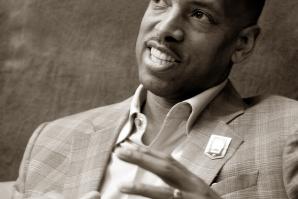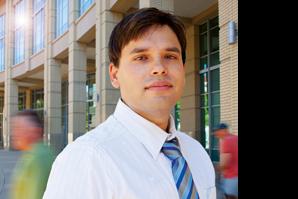When newly elected mayor Kevin Johnson proposed in 2008 a strong-mayor form of city government, the City Council soundly rejected the plan.
Last month, Johnson proposed a similar strategy — give voters a chance to decide the question on the June ballot, when they also elect four council members and the mayor — and again the council postponed it, instead proposing a more bureacratic solution that adds even more cooks to this overcrowded kitchen.
I only hope the public conversation between now and November is not dominated by debates about what power the mayor should have. I stand by the position I took back in 2008: The real issue is leadership talent.
A council-manager form of government can work effectively for Sacramento, as it has for decades. A mayor-centered government could work as well, assuming the right kind of mayoral talent.
Phoenix, the fifth largest city in the nation and rated as one of the best managed, has a council-manager structure. So does Austin and San Jose. But many other successful cities (New York, Los Angeles and San Francisco among them) have decided they want a strong mayor instead.
Neither structure is a panacea; neither promises easy solutions to Sacramento’s many challenges. Far more important are talented leaders — leaders who are more willing and able than some of our current elected officials to put aside petty differences and get on with the real work of building the region.
The first challenge among many is the economy. A year ago, Forbes magazine ranked Sacramento fifth on its annual list of the country’s most miserable cities. Soon after, the U.S. Bureau of Labor Statistics said Sacramento’s job performance was the worst among the nation’s major metro areas.
Since the official recession began four years ago, our region has lost more than 70,000 jobs, and real estate values have plunged 50 percent. Other parts of the country and even other cities in the state have shown signs of recovery while our economy has been stuck in the doldrums.
Now, economists say we may have finally hit bottom, but improvement will be very slow for at least the next two years as government and real estate continue to sputter.
We simply can’t take improvement and eventual growth for granted. We need elected officials to set the stage for growth and answer some critical questions:
• How can we build on the momentum of one of our few growth
industries, health care?
• How can we encourage our technology sector, both existing and
new?
• How can we capitalize on the few areas of real estate that are
beginning to show signs of life, niches like senior housing and
infill projects?
• How can we build on new developments in our downtown core to
finally promote significant revitalization?
• How can we coalesce on a plan for a downtown sports and
entertainment center, protecting taxpayers while also adding an
important venue that can help drive further development?
Any and all of these questions, and plenty of others, mean far more to the future of our city than whether we have a strong mayor. Put that question to the voters. Then put our leaders to work on the real business of the city.
Recommended For You

Mayoral Musings
'Strong Mayor' will make city more nimble, NBA matchmaking and soccer in Sac
It’s been quite a year for Sacramento Mayor Kevin Johnson, topped in most people’s minds by his stunning, come-from-behind effort to block the Maloof family from selling and relocating the Sacramento Kings. We sat down with him recently to discuss basketball and several other topics important to the Capital Region.

Would-Be Mayor
Acuity with Jonathan Rewers
Jonathan Rewers, 33, serves as chairman of the Sacramento Parks Commission. In the June elections, Rewers garnered 25 percent of the vote in his quest to unseat Kevin Johnson as mayor of Sacramento. He is now a candidate for the City Charter Commission.


